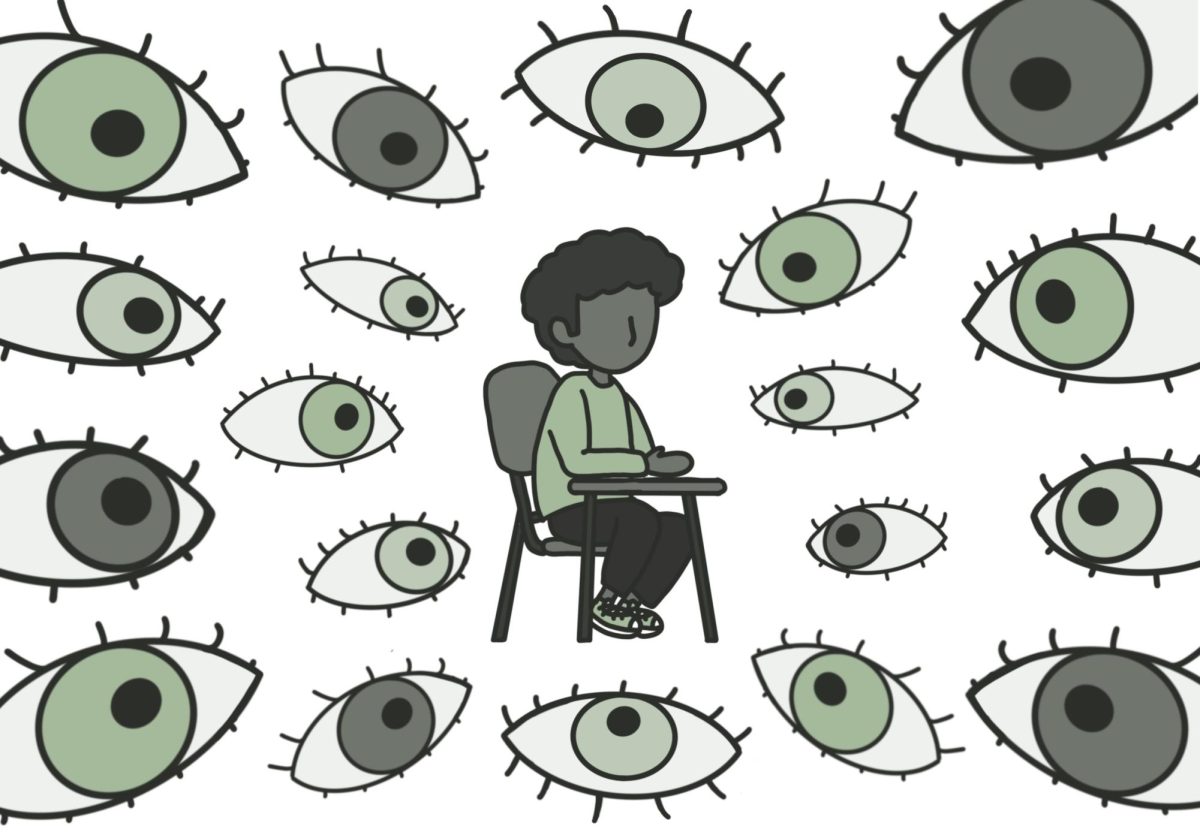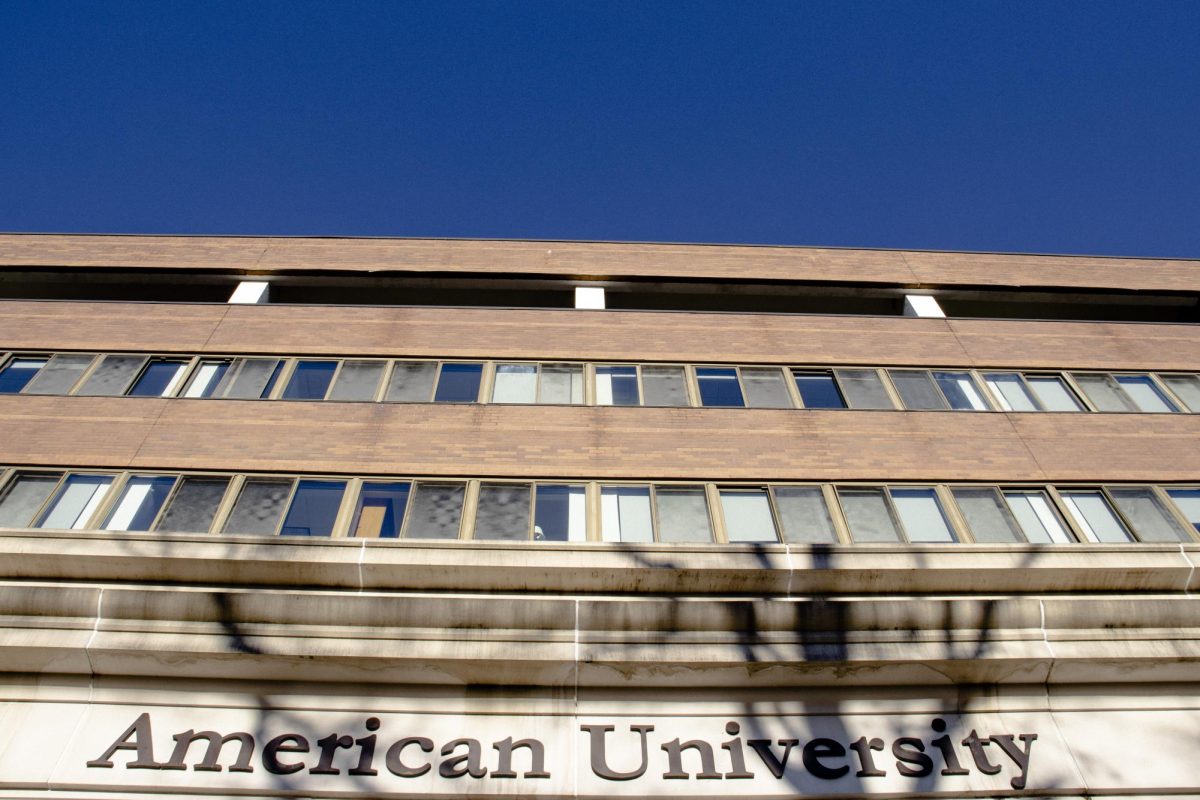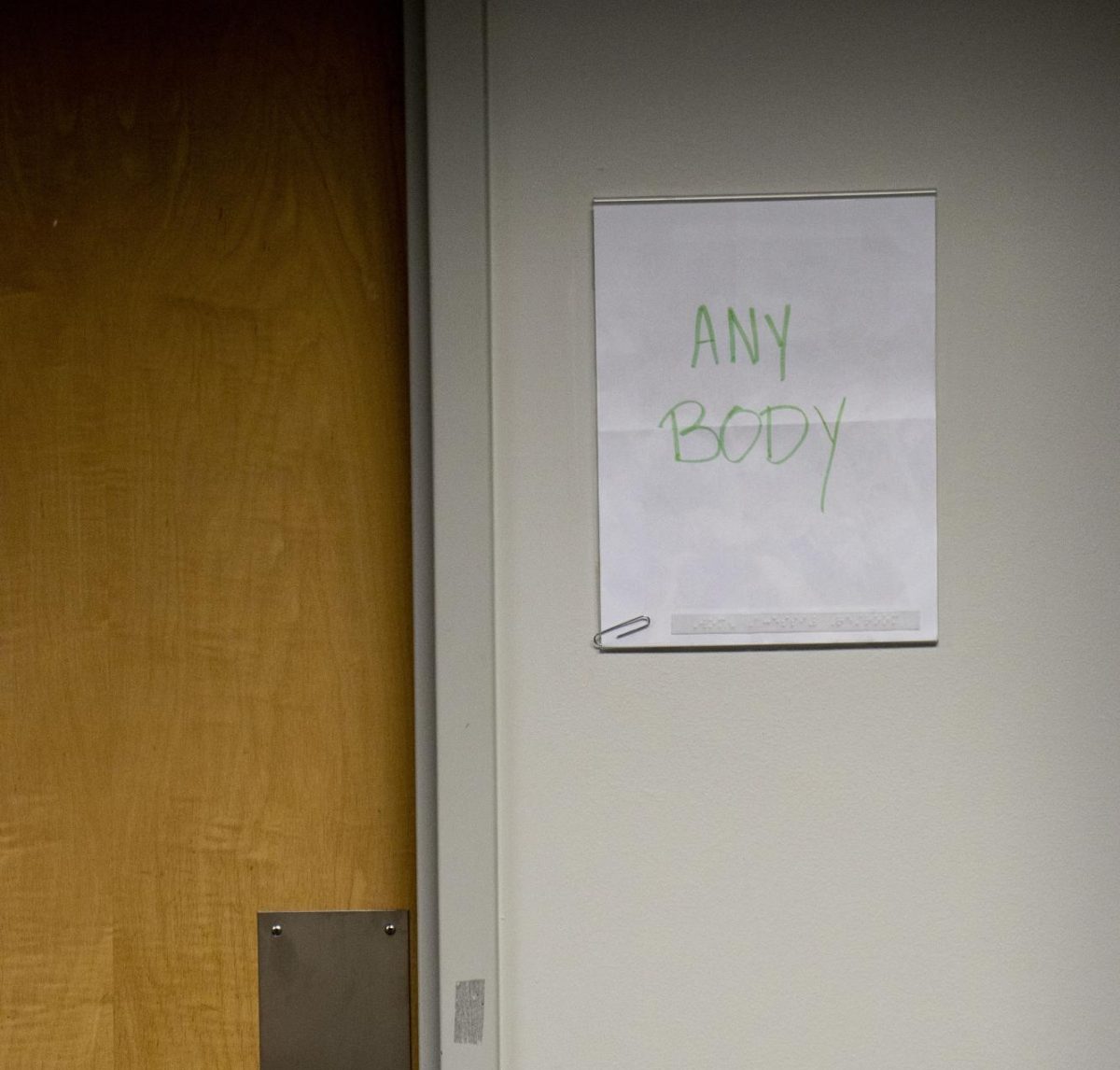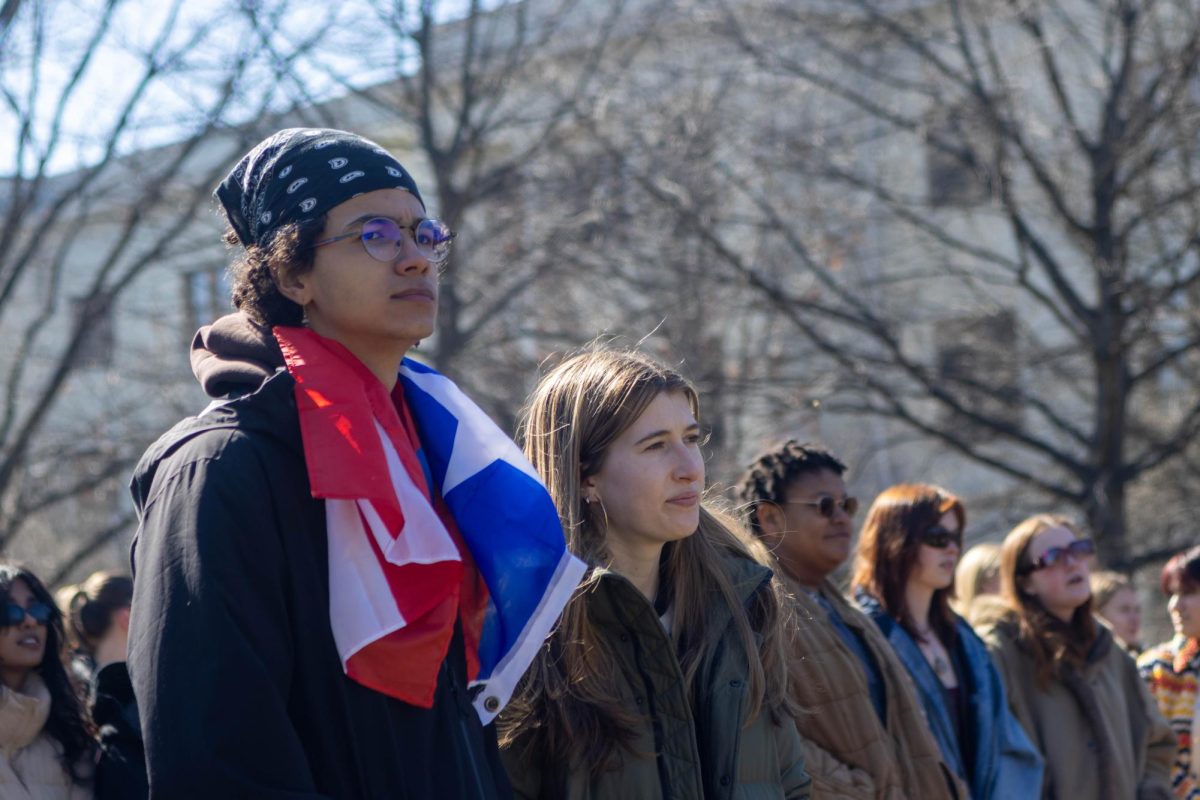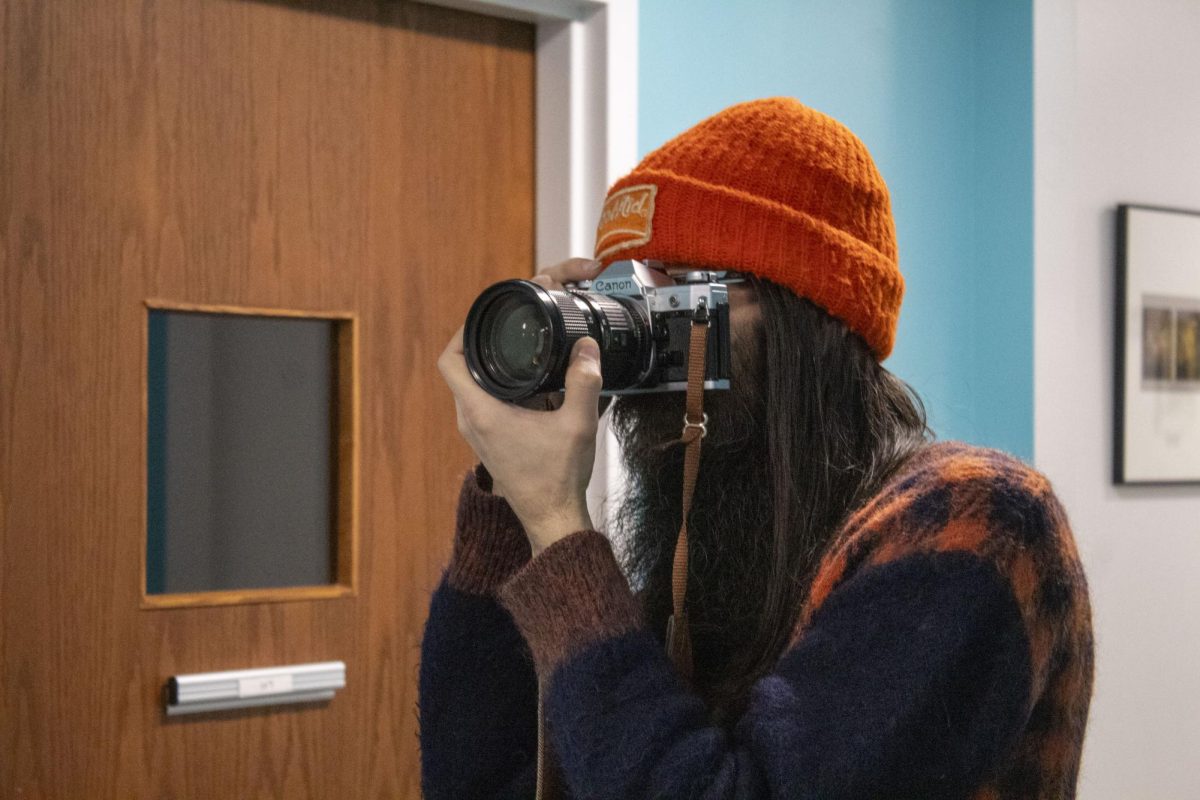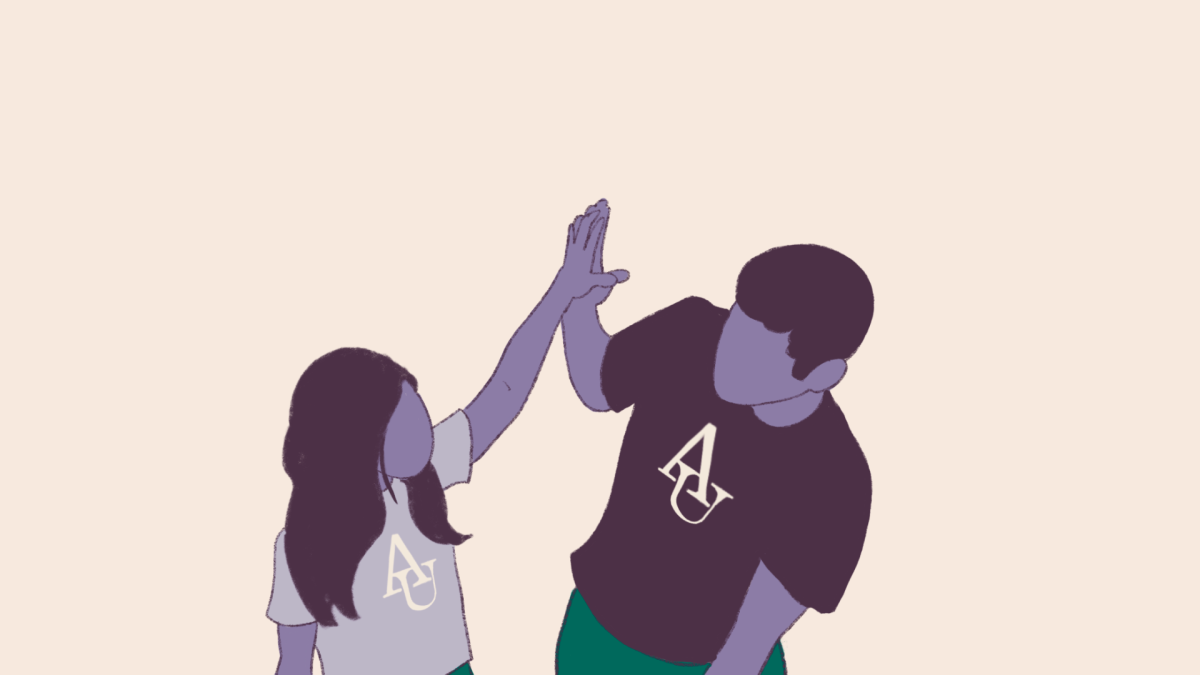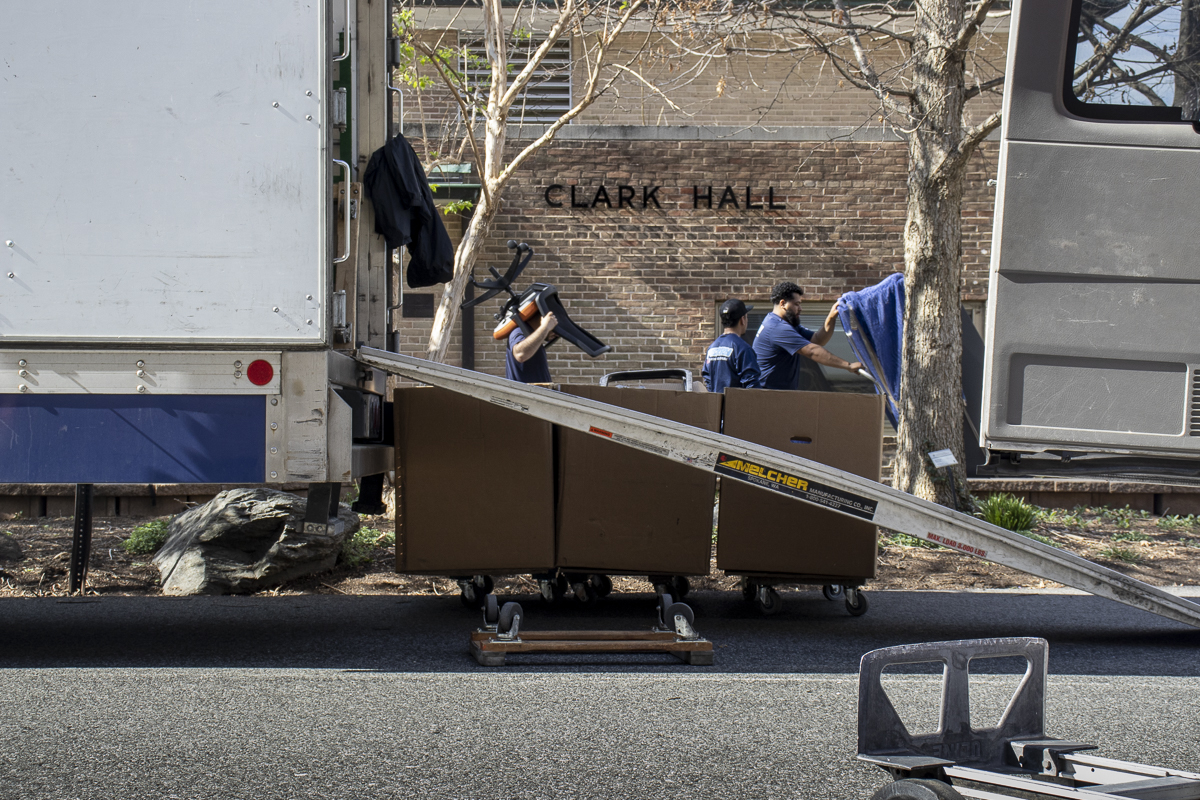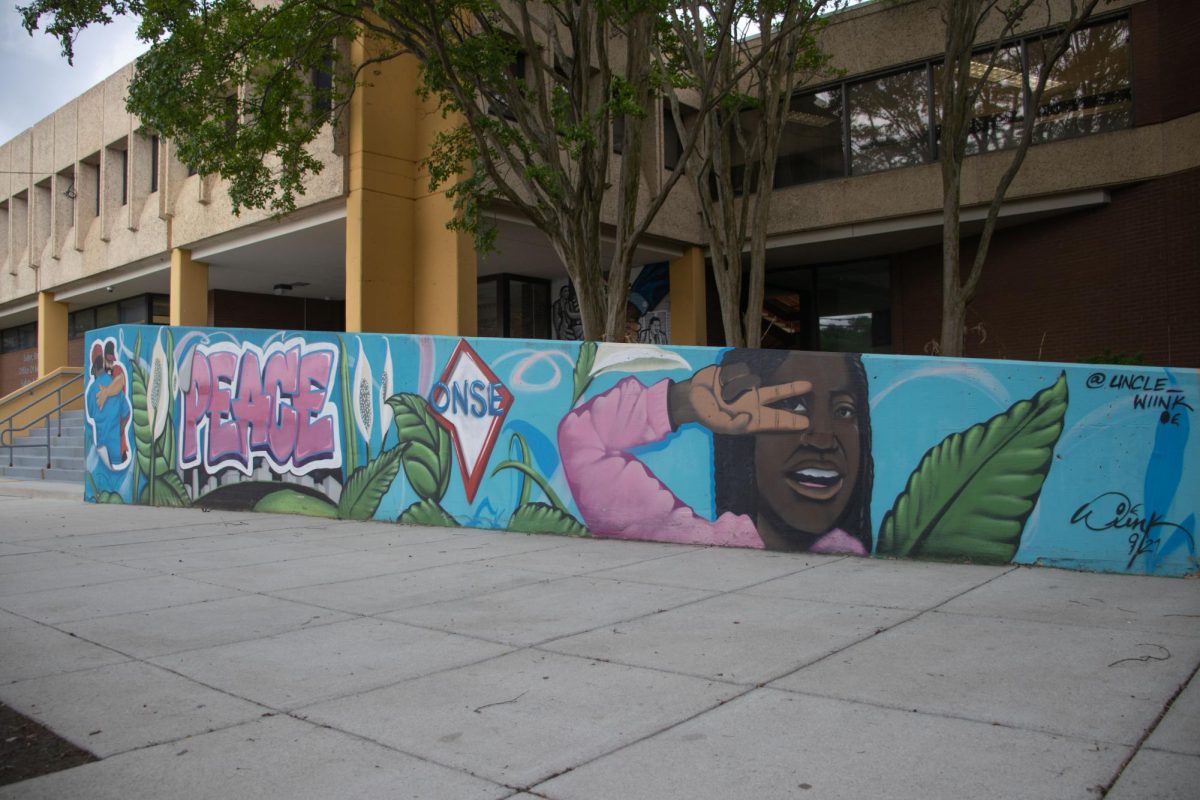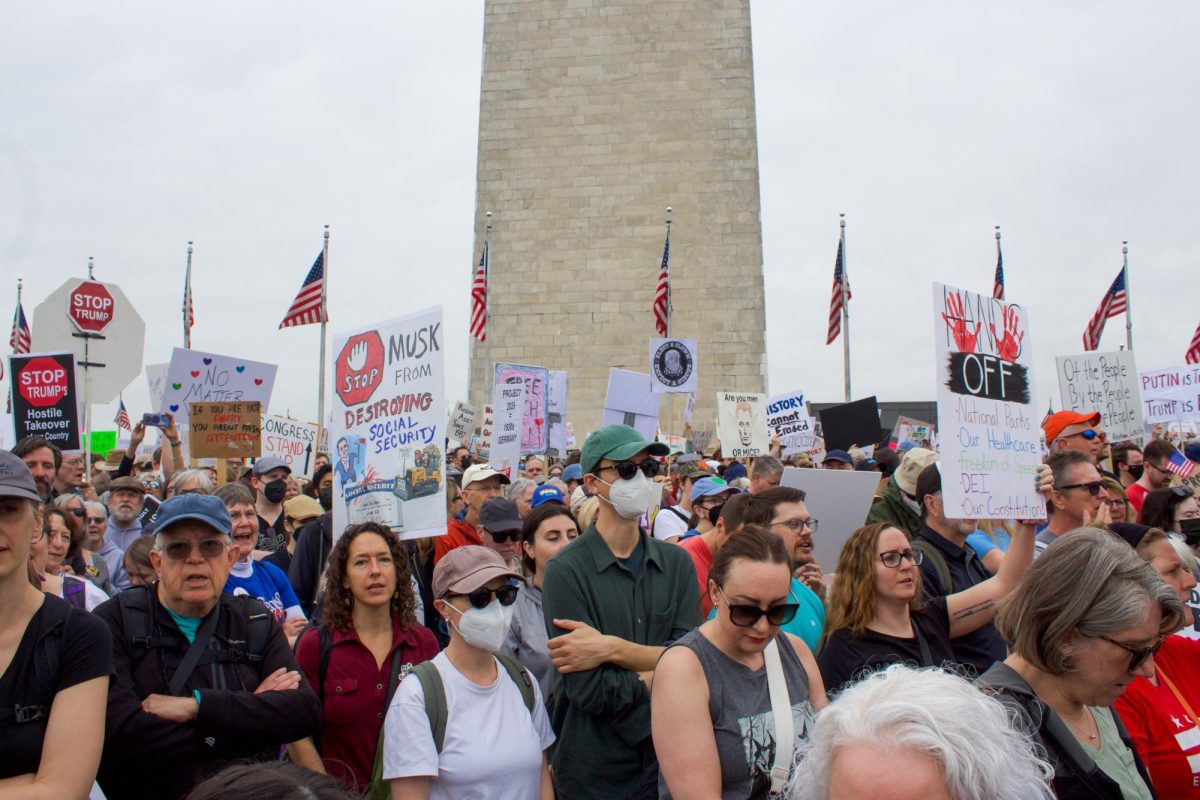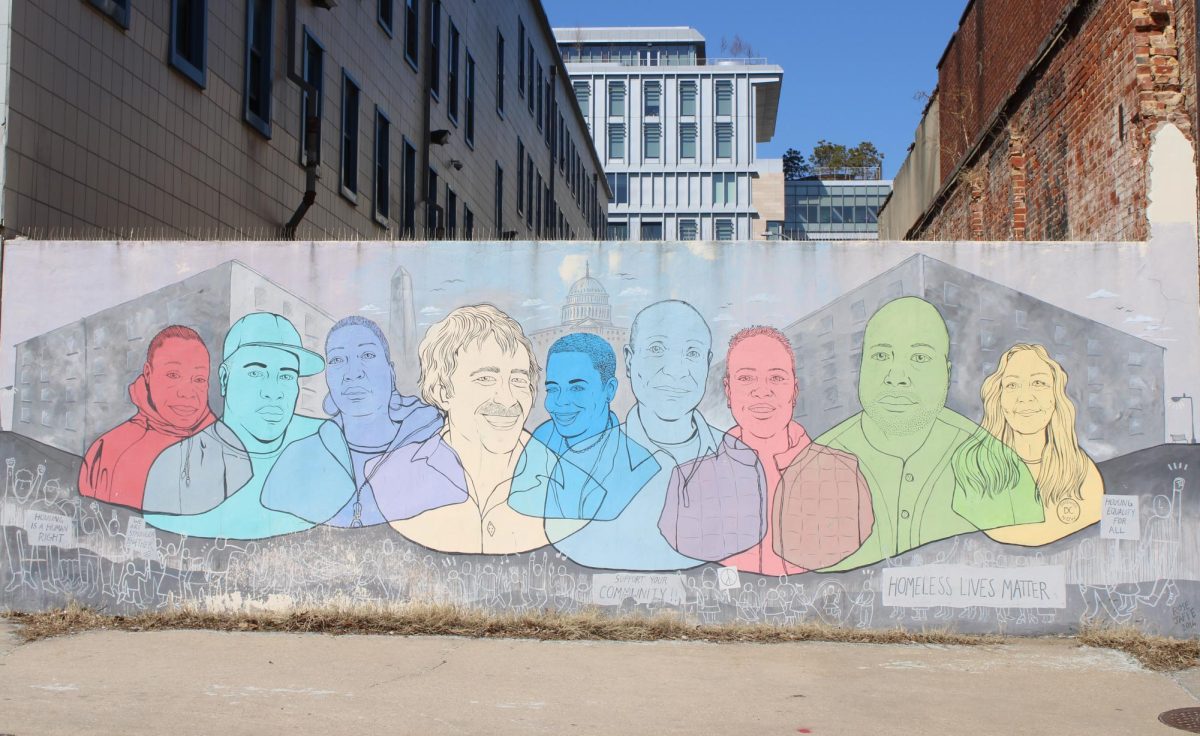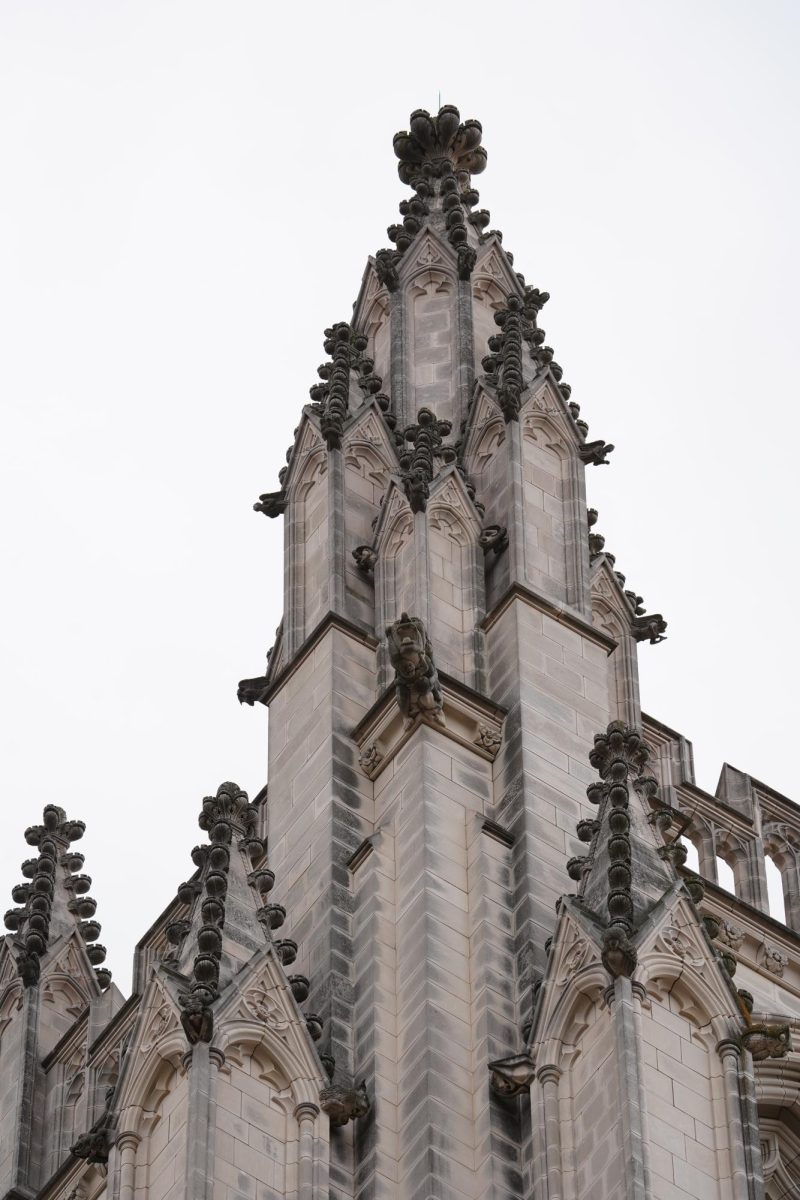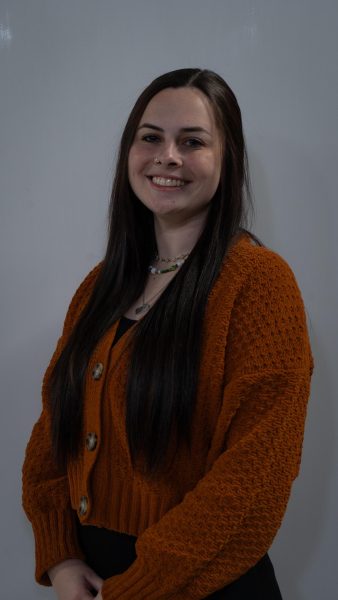Chioma Nwomeh wanted a school with opportunities to learn from her Black peers in Washington, D.C.
Now a senior, Nwomeh said she found those opportunities at American University after she applied in 2019. However, while Nwomeh was applying, her father reminded her of another corner of the school’s past: a racist incident that occurred at AU in 2017.
Bananas hanging from a string in the shape of nooses were found on campus. “AKA Free” and “Harambe bait” were written on the peel, referring to the Alpha Kappa Alpha, a historically Black sorority, according to a university memorandum released in 2017.
Taylor Dumpson, a member of the targeted sorority and student body president, filed and won a lawsuit against the publisher of a neo-Nazi website for online discrimination that followed the incident after two years of litigation, according to an article published on the Lawyers’ Committee for Civil Rights Under Law website.
Students protested against the campus incident, Nwomeh said. She said it showed her that students were ready to support Dumpson.
But Nwomeh said when she started her first semester, campus life was drastically different from her expectations.
She said she stopped believing administrators when they made commitments to promote diversity and that their attempts to listen to Black students on campus avoided a permanent solution.
“Black students are coming to you and saying that they don’t feel safe on your campus and nothing, they don’t say anything,” Nwomeh said. “But then all of a sudden, Black History Month comes along, prospective students are touring the school, and you’re teaching the tour guides what to say about diversity, inclusion, or whatever. It all just seems very performative.”
Nwomeh said her time at AU has been surrounded by performative engagement with Black communities and experiences. She said she now ignores many of the school’s efforts for solidarity and social engagement.
Other students and professors said AU’s population wasn’t representative of Black communities, leading to noninclusive class conversations and lackluster social settings.
The university has created spaces to support students with Black Affinity Housing and AUx2 courses, launched departments educating students on cultural studies and hosted trainings for diversity, equity and inclusion practices over the past four years, Internal Communications Manager Jasmine Pelaez said in a comment to AWOL.
Sophomore and AU African Student Union Social Media Chair Dorothy Nathan said she is concerned about the lack of Black students coming into AU.
“I need more diversity in the college tours,” Nathan said. “I know that they’re geared towards more of like, the white populations, and most times we see student groups visiting AU and they are all white kids, and that’s OK. But I’m just saying, I feel like there is definitely something more that we could do to reach out toward more diverse groups rather than it just being an AU thing because the school is very white on its own.”
Students of color account for 32% of AU students, according to AU’s admissions website.
Nathan said she sees courses like AUx2 as a way for students to build an understanding with each other. AUx2 is a mandatory course at the university that includes discussions on race and structures of power, according to the university webpage on the course. Nathan said the classes’ race-related dialogues are beneficial for engaging with diverse cultures.
“A lot of the white people in that class were definitely more informed than most AU students,” Nathan said. “I don’t think the white people in that class had ever learned as much as they learned about Black history or the everyday life of Black people.”
Although AUx2 is headed in the right direction, Nathan said the course may need some fine-tuning in representation.
“Most of the time, you’re either the only Black person in the class and you do have to teach the teacher and other white people in your class because you know things about Black people,” Nathan said. “And they’ll look directly at you. And it’s like, ‘I don’t want to be the one to teach you.’ It’s just uncomfortable for a lot of Black people.”
AUx2 doesn’t have to be the only class with a culturally diverse curriculum, said Theresa Runstedtler, an associate professor at AU who studies and teaches African American history. Runstedtler said a more inclusive curriculum would foster more diverse cultures on campus.
“It legitimizes students’ presence on the campus if you make them legible in the curriculum,” Runstedtler said. “If you don’t make it legible in the curriculum, then you haven’t really shifted the paradigm of the institution. Universities will still be places where you only study certain types of people in certain types of ways and are asking certain kinds of questions that may not seem relevant to the kind of student body that you’re attracting.”
Runstedtler said it is important to recognize that institutions are colonial structures and that colonial structures reproduce colonial knowledge and imperialist mindsets to reinforce white norms.
“AU and other private colleges were never imagined as a space for folks of color and working-class kids,” Runstedtler said.
Runstedtler said AU faculty is slow to vary from that initial vision. She said the systemic racism ingrained in those colonial structures, in part, invalidates the plight of the African American and African students.
Runstedtler, who teaches in AU’s African American and African Diaspora Studies program, said systemic racism affects Black student representation on campus. For instance, she said the program she teaches didn’t exist at AU when she arrived on campus in 2013.
“When I came to AU, there was no major,” Runstedtler said. “And that kind of shocked me because I was coming from the State University of New York at Buffalo, which had a department there for a long time. It was really the students who pushed for the program to be established.”
Diversity programs can aid inequality beyond education, said Donald Collins, a professorial lecturer of African American and African Diaspora Studies at AU.
“The reality is racism is everywhere,” Collins said. “Racism doesn’t take a break, just because you have to be going to college, it doesn’t take a break. Just because you have a teacher who means well, it doesn’t take a break.”
Collins said elitism also enhances the barriers created by racism, which can be isolating. He said his position as a part-time professor has shown to be an inhibitor to his ingenuity as an African American professor, compared to professors on the tenure track or term faculty. He said the trust and support he receives from AU administration does not equate to the level of experience he has as a professor.
The issue shows in his personal experience at the university, he said.
“There are definitely times at AU where I felt isolated,” Collins said. “The issue of AU is as much the issue of elitism, which, of course, is related to racism. But that argument is not direct. It’s not people saying stupid stuff to me that obviously is racist. If you know how the microfibers within elitism work, it draws on racism.”
Collins said oppression is subtle but can be solved with effective administrative policy.
“You have to have a leadership that’s committed to not just the words of diversity,” Collins said. “We have this anti-racist center that does almost nothing with the students that’s not inward facing. It is doing more now than it did when Ibram Kendi was there, running the center up until 2020. But it’s not really doing that much.”
Ibram Kendi is a leading scholar in racism studies and is a founding member of AU’s Antiracist Research and Policy Center. The center prioritizes unlearning racism and practicing racial justice. Back in 2017, before the completion of the center, the early initiatives provided by Kendi were to maintain the world’s largest virtual library of data on racial inequality and host debates on race.
Collins also said AU established the Center for Diversity and Inclusion on campus because of a lack of diversity and an abundance of hate.
“It was specifically created because students protested in large numbers about the antisemitism on campus, the lack of diversity in terms of the student body and the lack of diversity in terms of the faculty,” Collins said. “All of that led to the administration creating the center, a center that doesn’t do a whole lot.”
Pelaez said in a comment to AWOL that other organizations on campus do promote diversity. She said AU administrators work to create spaces and programs to support students’ identities.
“We are committed to all our students, including students of color, and their experience of a campus climate, culture, and community in which they can fully engage and thrive during their time at AU and beyond,” Pelaez said.
Black Affinity Housing, Black Affinity sections of AUx2 and the Department of Critical Race, Gender and Cultural Studies work to create a diverse culture at AU, Pelaez said.
Pelaez said AU alumni also reach out to community members to increase diversity.
“Our work is continuous to improve students’ sense of belonging and community,” Pelaez said.
Pelaez said AU is listening to the Black and multicultural student body and working to proactively provide support in the form of research and academic offerings. Pelaez also said that Nkenge Friday, a diversity and inclusion expert, will be joining AU as vice president of inclusive excellence. Friday will focus on enhancing dialogues and engagement across campus.
Drawing from her experience as a student, Nathan said she felt her white classmates benefited from learning about Black experiences from a personal level.
“I truly just believe that if they’re put in spaces with their peers, and [if] Black students were talking about these different issues, and they are forced to learn, they will gain more knowledge than they had before,” Nathan said.
Nwomeh said her curiosity was in the minds of newly accepted colleagues studying around her during her last year on campus.
“But I just think it is interesting: the culmination and combination of Black people that landed at AU and their mindsets on education,” Nwomeh said.
Nwomeh said some Black students are involved with clubs, work and have an internship.
“Then, there are the international students who come from Africa or the Caribbean and have a different mindset when it comes to pursuing their education,” Nwomeh said. “I just feel like AU is very unique in that sense.”


